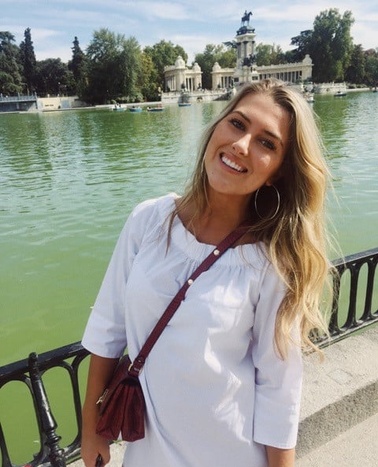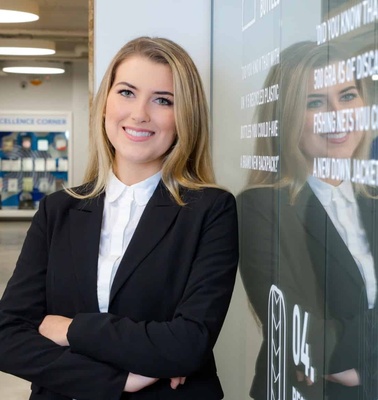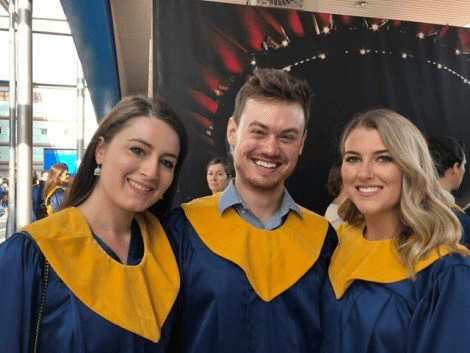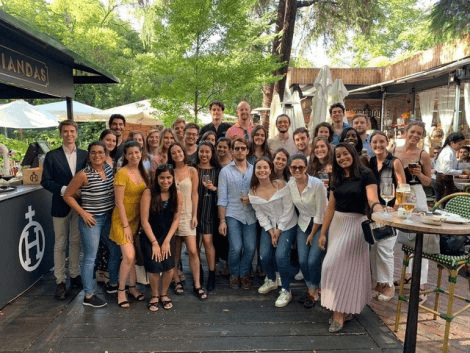
Keely Bass
I realized that I wanted to study politics and international relations at age 19 after two years of feeling lost in a large university, and I have never looked back. I have come to understand that my two passions are people and places, which is why I find politics, history, travel, cultural studies, languages, and international relations so fascinating. I was born and raised in Vancouver, but I have always made a conscious effort to get outside my comfort zone and explore new places. I have travelled alone throughout Europe and Asia, and I have no problem dropping everything and settling into a new city. I would describe myself as very self-driven and independent, and I love to learn and solve problems. I feel a sense of personal responsibility, but also an eagerness to help find solutions to socio-political problems and create meaningful change. I think the culmination of my life experiences, passions, and personality traits is what led me to choose the MIR, as the program strongly reflected my values and academic goals. After meeting with a recruiter and attending an alumni mixer, I knew that I wanted to be apart of the IE community. I believe that these same experiences and traits are what inspired me to work as a public servant. To me, there is no greater honour than having a job where you are working every single day to create a better society and stronger government for every citizen, regardless of who they are.

“Be unapologetic about who you are and the value you add to this world”
Can you tell us a little about your current position?
Yukon Government’s Department of Highways and Public Works as a Communications and Public Relations Analyst. The Yukon has the smallest population of any province or territory in Canada, so it poses unique challenges from a public sector perspective.
My department includes aviation, highways, public infrastructure, information communication technologies, supply services and procurement. On a day-to-day basis, I am working on communications materials and responding to media inquiries about all of these different branches. My projects range from e-governance services, electric vehicles, and gender-neutral bathrooms to new airports, highways, and bridges.
What were you doing before the MIR?
Before the MIR, I completed a B.A. Political Science and International Relations at the University of British Columbia (UBC) in Vancouver. Throughout my degree, I worked in experiential marketing with companies such as Coca-Cola and Samsung, and led one of UBC’s largest non-profit societies that advocated for student rights. During my time at UBC, I completed an internship in Hong Kong and went on exchange to Santiago de Compostela in northern Spain, which later inspired me to move to Madrid.
What did you think about the class trip to Brussels?
The class trip to Brussels was one of the highlights of my year. It was great to travel with everyone to a new country and experience all of the amazing organizations, think tanks, and companies that we had the privilege of visiting together. The trip to the European Union was fascinating, as we got to hear an insider perspective of the refugee crisis and the European response. At NATO we had the opportunity to learn about the evolution of the alliance and the future of transatlantic security. Every class visit provided new insights and sparked great conversations. During our free time, I explored as much of the city as possible with my classmates. Brussels is a rich historical city where you are never too far from delicious waffles, beer, or french fries! To end the trip, we had a lovely class dinner with the administration team, that was filled with lots of laughs and red wine.
“Be unapologetic about who you are and the value you add to this world.”
Has your definition of diversity changed since studying at IE?
Even though I grew up in Vancouver – which is a very cosmopolitan city – my year at IE managed to change my definition of diversity profoundly. IE has taught me that diversity is rooted in empathy and understanding. Many political or social explanations of diversity include acceptance and celebration of differences, which is essential, but I now realize that true diversity involves the additional ability to understand the lived experiences and perspectives of people truly different to yourself. These differences are not just based on culture, ethnicity, gender, sex, languages, or religion; diversity also includes differences of personality, political views, values, goals, and ways of living. The IE classroom offered a lens into the nuances of diversity, which created a rewarding yet challenging learning environment. While the MIR class had some heated academic and political debates throughout the year, we relied on our empathy and understanding to not let these differences come between us.
Story about your MIR experience maximum 500 words. (favorite classes, memories, projects, professors):
The MIR is a whirlwind experience that perfectly encompasses the quote, “work hard, play hard.” We were lucky to have a classroom on a beautiful campus in the heart of Madrid, which (along with Rodilla coffee) made going to school every morning easy. The workload was challenging, and the studying was non-stop, but the multidisciplinary nature of the program kept me engaged throughout the year. I am fortunate to have found a group of amazing life-long friends within the MIR class, as these individuals made my MIR experience unforgettable. I always had someone to camp out in the library with on Sunday or to go on a fun day trip to Segovia or Alcalá de Henares. Some highlights of the year include a trip to Maastricht for the NASPAA-Batten Public Policy Simulation competition with my classmates, a field trip to the Reina Sofia Gallery with my Spanish class, and the NATO capstone project. My favourite courses were Corporate Social Responsibility, Climate Politics and Environmental Sustainability, and International Relations and Political Economy of the Middle East. These courses all had outstanding professors who deepened my passion for international relations and inspired me to research outside of the coursework. I also really enjoyed Quantitative Methods – unpopular opinion – as we learned some wonderful Excel skills that I still use today.
Did you get a scholarship? If so which one?
Yes, I received the International Relations Essay Challenge Scholarship before the start of the program. I wrote an essay about what global citizenship meant to me, which remains one of my favourite written works.

